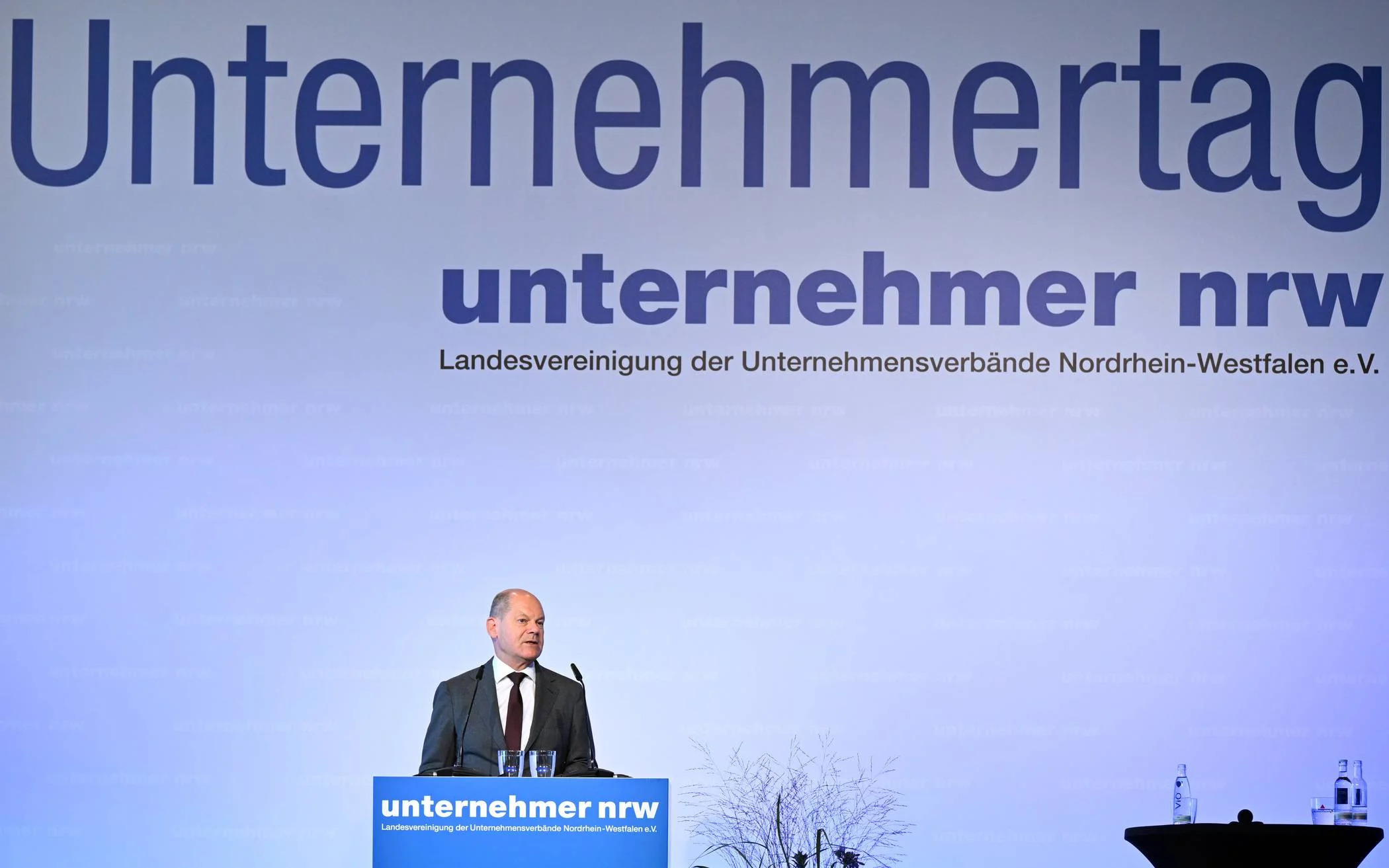The German economy is in the midst of an ongoing economic crisis. After the GDP fell by 0.1 percent in the first quarter of this year, it stagnated at 0 percent in the second quarter. The International Monetary Fund forecasts a decline in German economic output of 0.3 percent for the whole of 2023, while the Leibniz Institute for Economic Research even predicts a decline of 0.4 percent.
North Rhine-Westphalia is said to be especially affected by this development.This is said to be mainly because NRW is home to a particularly large number of "energy-intensive" companies from the steel, chemical and other industrial production sectors, which would suffer from the high energy prices. According to WDR data, for example, Germany has the highest electricity price in Europe and also compared with imperialist competitors such as the USA and China. Another is said to be the generally weak economic situation on the world markets, which means that export-oriented companies in NRW are getting fewer orders in.
In the discussion about how the FRG can get out of this economic crisis and remain competitive in the inter-imperialist struggle, there is much disagreement among the bourgeoisie. Habeck's Ministry of Economics recently proposed an "industrial electricity price". The concept would guarantee electricity prices for industry of up to 6 cents per kilowatt hour until 2030; if prices were above that, the state would then take over the rest. For the bourgeois state, this plan would cost 25 to 30 billion euros. This proposal was recently rejected by FDP Finance Minister Lindner. And also Federal Chancellor Olaf Scholz spoke on the NRW Entrepreneur Day in Duesseldorf on last Wednesday of it that enterprises in emergency are to be saved, but debt-financed economic stimulus packages and subsidies for a low continuous electricity price are financially not affordably. In contrast, he spoke out in favor of the long-term and strategic expansion of renewable energies and the hydrogen infrastructure.
Other reasons as well as effects of the economic crisis currently taking place are not given much attention either in the media coverage of the NRW Entrepreneurs' Day or in the other analyses of the economic crisis. The sinking purchasing power, for example. The reason why purchasing power is falling and why this is not really taken into account in the bourgeois analysis of the crisis is that the purchasing power of the vast majority of people in Germany is based on the level of their wages. Real wages in the FRG have been falling continuously since the second quarter of 2020, with the exception of one quarter. For six quarters, workers in this country have been earning less and less compared to their real spending. This wage loss is, of course, immensely exacerbated by inflation and the puny settlements of the yellow unions.
Another manifestation of the crisis is the bankruptcies and economic crashes in the basic social services sector. In North Rhine-Westphalia, for example, there were as many nursing home insolvencies in the first three months of this year alone as in the whole of the previous year combined. A total of 27 nursing homes had to close in North Rhine-Westphalia, leading among other things to 32 people in need of care losing their places in Solingen. According to information available to the West German broadcaster Westdeutscher Rundfunk, an additional 46 facilities went bankrupt in the second quarter. That means that in the first six months 73 nursing homes had to close for economic reasons. For comparison, in the year 2022 it was altogether 25. Reasons for the risen insolvencies are to be also the risen energy prices. However, one hears here no debate in the bourgeois media and the ministries about whether it will come to a "care electricity price". In addition to the high electricity prices, there is also the famous shortage of skilled workers, which would not allow some facilities to fill all the places in the nursing homes, which means that less money is coming in. However, this shortage of labor and skilled workers is directly related to the absolutely disastrous working conditions in the care sector on the one hand and, on the other hand, certainly also with the falling real wages over the past few years. Means, if one must select somewhere to sell ones work force for too little money, then many do not want to do that still under catastrophic conditions in the care sector. We remember the eleven-week strike of the care workers last year.
That the public debate is more about the concerns of the capitalists and industrial production than about the dwindling purchasing strength and the bankruptcy of basic public services is in the nature of imperialism. The German capitalists are also dependent on the fact that someone buys their products in the German domestic market, but the question of the general recession of parts of the German finance capital and their current export weakness simply weighs much more for German imperialism. In addition, rising real wages, which would even go above inflation, could strengthen the domestic purchasing power, but on the other hand would only be more costs for the German capitalists, besides the high cost of electricity, which would reduce their profit and drive them even more into the crisis.
This should not be a reason for us as workers not to fight for higher wages and a functioning basic supply. On the contrary, the discussions in the bourgeoisie on the topic of crisis solutions show everyone once again that the clashes of interests between workers and the bourgeoisie are irreconcilable. Their imperialist system causes the crises we have to suffer from and the imperialist crisis solutions only deepen our misery.











